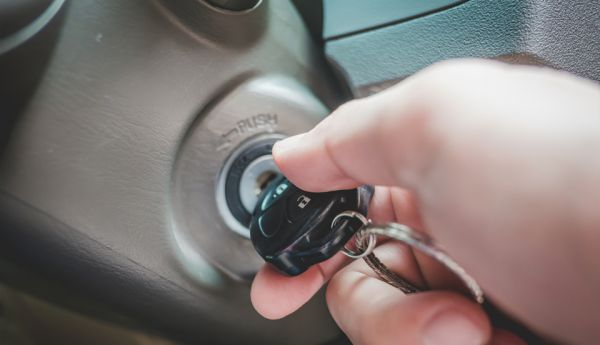October 15, 2019 at 8:06 PM
Checks to do if your car doesn't start

You're all set to enjoy a road trip, you turn the key – and your car won't start. Don't panic! There's often a simple explanation, and carrying out these five simple checks could help you to get on your way.
1. Is the immobiliser active?
Most modern cars are fitted with immobilisers which only allow the engine to start if the right key is inserted. Have a look at the dashboard while you turn the key and check whether the security warning light appears – it's usually shaped like a key, and it may flash. If you have a spare key, try this first. If that works, great! If not, you may need to get your key reprogrammed or get the dealer to provide a replacement.
2. Check the battery
This is an important thing to check since it's a very common problem. Maybe you just left the lights on overnight, or perhaps the battery itself is old and tired. It's possible that there's an electrical fault, too. Try turning on the windscreen wipers – if they're very slow, your battery level is low. Jump-starting the vehicle is one way out, but be careful to follow the right procedure. Getting a new battery fitted is often the best option.
3. Try jiggling the key
Sometimes, the ignition switch develops a loose connection. If you can start the car by moving the key around in the lock and then drive normally, this is a possible reason. If you drive a vehicle with automatic transmissions, like most motorhomes, try starting the car from both Park and Neutral. If one works but not the other, the neutral safety switch may be at fault. Newer cars may also develop problems with computerised security systems that prevent them from starting.
4. Check the lights
If you can switch your lights on as usual, then a drained battery is unlikely to be the problem. Turn the key and listen to the sound you hear. A clicking noise may indicate a faulty starter motor. In most cases, you'll need to have it replaced by a professional mechanic. This is not ideal, but it's certainly better than not going at all!
5. Is your oil okay?
If the car tries to start, but the engine turns over very slowly, it may indicate a problem with the oil filter. If fuel is getting into the oil, it will stop the engine from operating efficiently. If you rule out battery or starter motor problems, the likely reason is a faulty oil filter. You'll need to go to a garage and get your oil changed and a new filter fitted. You'll also get peace of mind.



